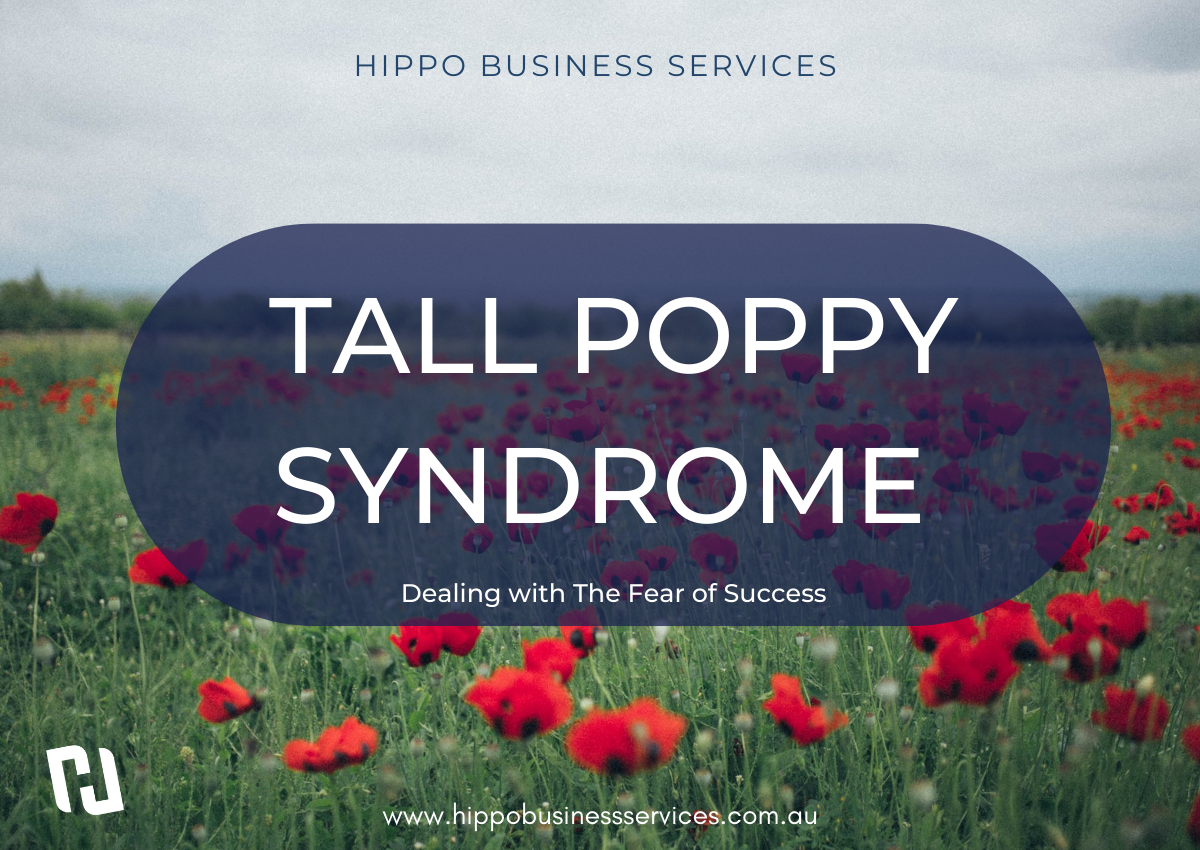No matter what industry you are in or what stage of your career you are at, there is a chance you have experienced Tall Poppy Syndrome. Tall Poppy Syndrome refers to the phenomenon of resenting and ridiculing those with strong self-esteem and sense of ambition, along with their accomplishments.
This practise of ‘chopping a tall poppy down to size’ is most popular in Australia and New Zealand, likely stemming from the countries’ deep-rooted cultural egalitarian values. While many believe this practice fosters humility and fairness, evidence suggests that it is detrimental to the confidence and success of individuals. The fear of being ‘chopped down’ by others results in individuals becoming reluctant to express their aspirations or achievements, limiting potential opportunities.
Studies undertaken by CGU Ambition Index show that 68% of Australians believe that our culture views ambition negatively, with 70% of respondents reticent to express their aspirations in fear of being branded a ‘show-off’. Moreover, over 9 million Australians have considered starting a business, with only 540,000 following through.
For business owners, their livelihoods are heavily contingent on being a ‘tall poppy’ in an oversaturated market. These destructive attitudes towards ambition not only shames current entrepreneurs for their aspirations, but also deters future entrepreneurs.
If you are suffering from Tall Poppy Syndrome, it is incredibly important to be aware of the indicators listed below in order to develop a healthy self-care strategy:
- Not chasing goals to ensure you ‘blend in’
- A reluctance to convey new ideas
- Self-deprecation of your ambitions in front of others and when alone
- A loss of drive in chasing goals
- Refraining from celebrating personal success
- Not wanting to make others uncomfortable due to your success
To unlock a wave of ambition in Australia, we must change our perspective on success and drive, whilst acknowledging the avenues of self-care listed below to protect against Tall Poppy Syndrome’s harmful effects:
1. Change begins with you
While the practice of ‘chopping down tall poppies’ is deeply engrained into our culture, try to deviate from this status quo. Instead, become the change you want to see by encouraging ambitious behaviours with those around you, as well as congratulating others for their accomplishments.
2. Share
While discussing your accomplishments can be awkward, others often find it helpful to learn more about how you tackled a problem. Sharing our personal successes with others also allows those suffering from the consequences of Tall Poppy Syndrome, insecurity, or a lack of opportunity to recognise their own potential.
3. Let go of what others think
There are always going to be naysayers who find fault in you and your work. No matter what you do, you can never please everyone. Thus, do what you must and focus on those who believe in you.
4. Good company
It is extremely important to surround yourself with positive friends, family, mentors, or members of your industry who wholeheartedly support you and commend you for your achievements.
5. Value your mental health
Ensure that you seek immediate help if necessary; the side-effects of Tall Poppy Syndrome are not always easy to deal with alone, and they can negatively impact your mental health.
6. Congratulate yourself
Lastly, always honour your accomplishments with your preferred form of self-care, whether that be a fancy dinner, holiday, or a night-out with the family. Celebrating your own achievements not only boosts your self-confidence, but also encourages you to work harder towards future goals.
All in all, stop letting Tall Poppy Syndrome prevent you from pursuing your goals, and start being proud of your achievements. Now is the time to recognise that it would be substantially easier for everyone to succeed if we all began focusing more on ourselves, less so on what others are doing.








